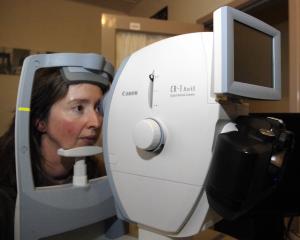University of Otago-led research suggests doctors should begin asking patients seeking help for mental health issues about their family's history of mental illness, after new findings showing family histories can provide important indicators about the patient's risk of developing a disorder and how seriously they might be affected.
A short questionnaire about a person's relatives and their symptoms of depression, anxiety, or substance abuse was enough to predict not only whether the interviewee was at greater risk for developing each disorder, but also how severe that future illness was likely to be, the Dunedin Multidisciplinary Health and Development study found.
The findings showed taking a family history was a "quick and cheap way" of predicting which patients were likely to have recurring mental-health problems and which might need early intervention or more aggressive treatment for their mental illnesses.
"A family history is very powerful information," one of the researchers, Dr Barry Milne, said yesterday.
"We found that asking three or four questions about the family history relating to each disorder was all that was needed."
The research, summarised in the July issue of the United States journal Archives of General Psychiatry, was carried out by an international team led by the Dunedin Multidisciplinary Health and Development Study.
The study is following 1000 people born at Queen Mary Hospital in Dunedin in 1972-73 and has been tracking their physical and mental health and lifestyles since they were 3 years old.
The family history research involved talking to the study subjects and their parents and asking questions about mental-health disorders in three generations of each family, Dr Milne said.
About 3000 people were interviewed directly, and information was collected for another 5000 people. The information was then collated into individual family history "scores".
Patients were routinely asked by doctors about their family history of medical problems such as cancer, diabetes, and heart disease. But until now, that had not been the case for mental illnesses, he said. However, the new findings made a strong case for changing practice.
The validity of the research still had to be tested in a clinical setting, but Dr Milne said he hoped someone would pick up the idea and develop a questionnaire that could be used by doctors in New Zealand and elsewhere.
The researchers were "on to something", provided the questions were asked sensitively and at the right time, Mental Health Foundation of New Zealand chief executive Judi Clements said yesterday.
While some GPs were aware of the need to ask patients about their mental health as well as physical health, others "avoided the area", she said.
"This is a step in the right direction. Anything to get GPs more involved [with patients' mental health] is good."
Ashburn Clinic medical director Dr Brett Ferguson said a "straightforward and brief" questionnaire GPs could use could be "a very useful thing".
Psychiatrists knew the value of a detailed family history when dealing with patients with mental health issues, but gathering a comprehensive history could take an hour or more; time most GPs would not have.











